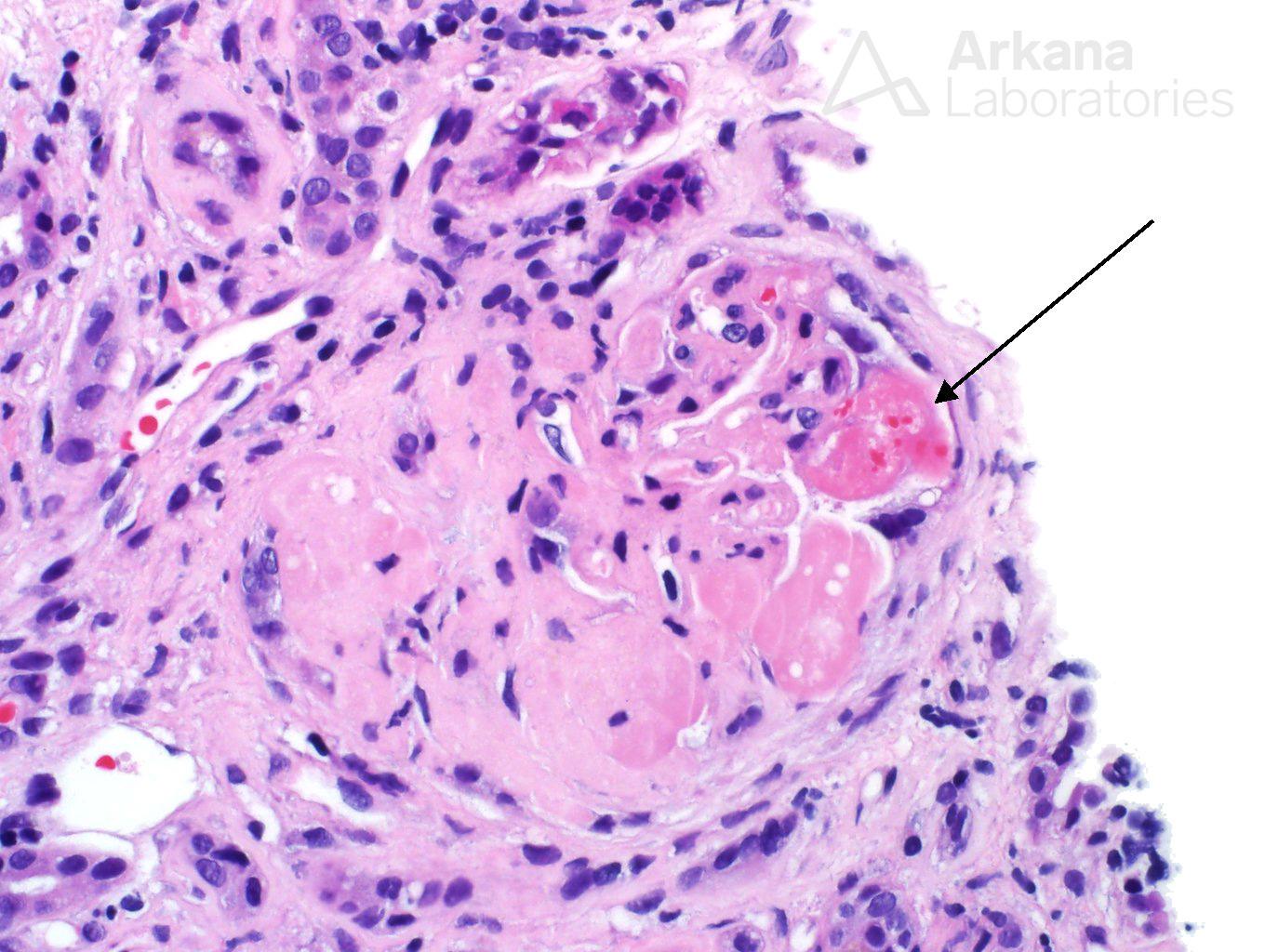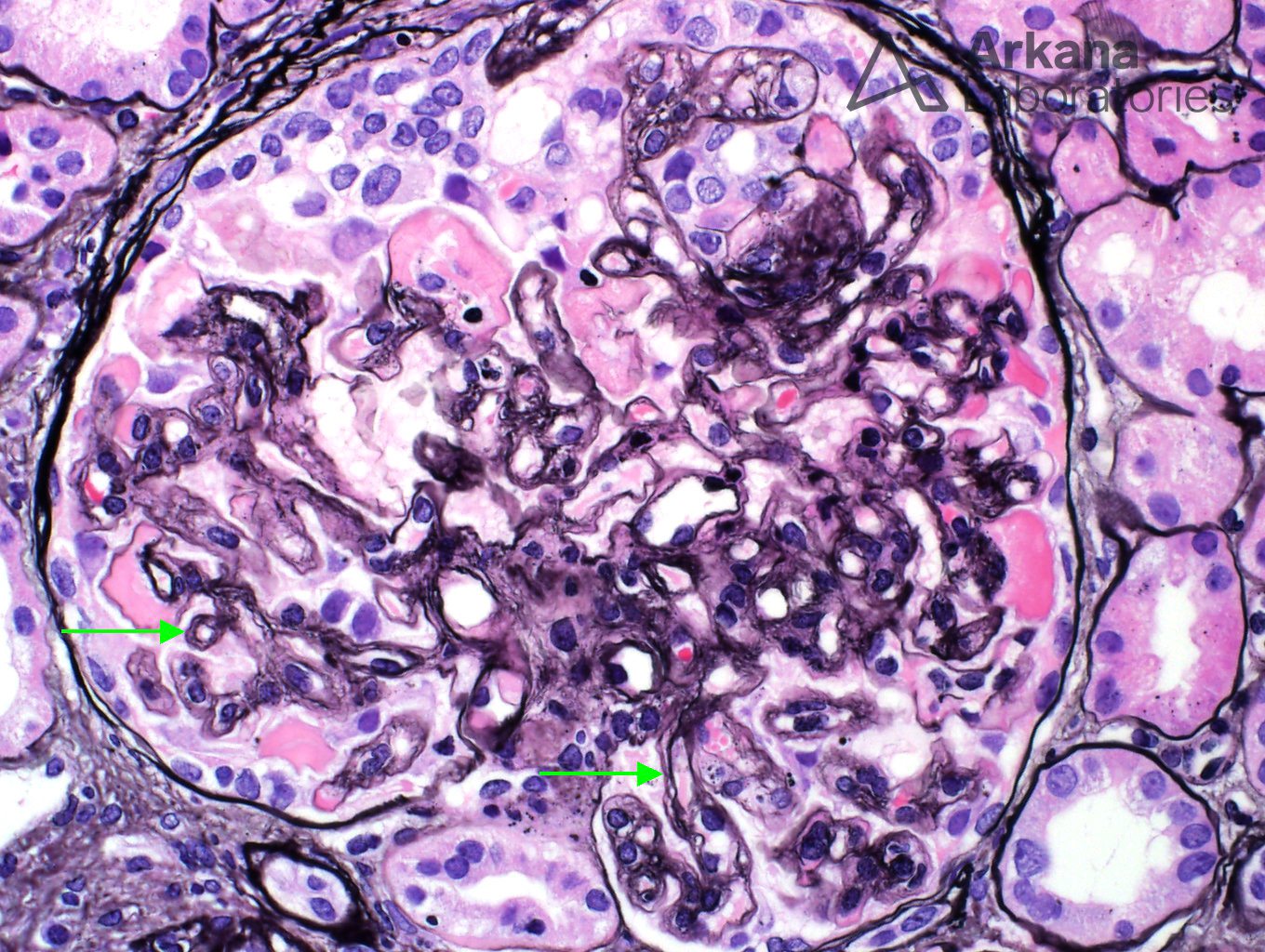This biopsy was taken from an older adult man with acute kidney injury and non-nephrotic range proteinuria. His medical history included metastatic colonic adenocarcinoma, for which he was taking bevacizumab, an anti-vascular endothelial growth factor (anti-VEGF) inhibitor. The sampled glomeruli show changes of thrombotic microangiopathy (TMA), including double contour formation of glomerular capillaries (Fig. 1) and intracapillary red blood cell fragmentation (Fig. 2). TMA is one of the most common adverse effects in the kidney of bevacizumab therapy, and it has been reported as early as one week after starting the drug. Other pathologies reported in the setting of anti-VEGF treatment include focal segmental glomerulosclerosis (FSGS), collapsing glomerulopathy, and immune complex-mediated proliferative glomerulonephritis, among others.

Reference
Usui J, et al. Clinicopathological spectrum of kidney diseases in cancer patients treated with vascular endothelial growth factor inhibitors: a report of 5 cases and review of literature. Hum Pathol. 2014 Sep;45(9):1918-27. Review. PubMed PMID: 25087655.
Quick note: This post is to be used for informational purposes only and does not constitute medical or health advice. Each person should consult their own doctor with respect to matters referenced. Arkana Laboratories assumes no liability for actions taken in reliance upon the information contained herein.


